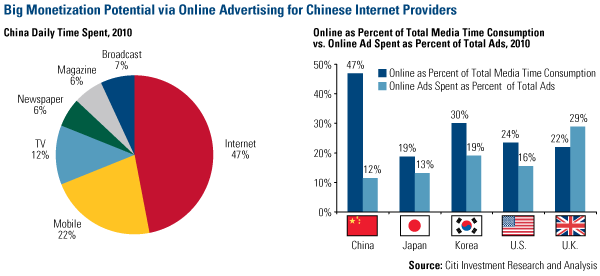Emerging Markets Radar (February 6, 2012)
Strengths
- Emerging markets had a strong week as positive global economic data is boosting expectations on economic growth. Key outperformers included Taiwan, Turkey and the Czech Republic.
- Currencies played a big role this week with many emerging market currencies rallying strongly. The South African Rand rose 2.9 percent, the Mexican Peso rose 1.9 percent and the Turkish New Lira, Indian Rupee and Colombian Peso each rose more than 1.25 percent.
- China’s January PMI was 50.5, improved from 50.3 in December and higher than the market estimate of 49.6. PMI above 50 indicates economic activities are expanding. The new order index was up 0.6 to 50.4 from December, while the new export order index was down 1.7 to 46.9, indicating China’s economy is driven by domestic demand. China’s January HSBC flash PMI improved slightly to 48.8 from 48.7 in December.
- German luxury-car maker BMW AG said Thursday that sales in mainland China rose about 30 percent in January to around 26,500 cars.
- Chinese banks may extend 9 trillion yuan ($1.43 trillion) of new loans this year as policymakers allow expansion in formal lending to replace shadow financing and enable the nation’s powerful growth engine to keep humming, Fitch Ratings Ltd. said.
- Korean CPI rose 3.4 percent in January, the slowest increase in 12 months.
- Thailand’s CPI rose 3.38 percent in January as lower food prices offset higher energy costs. The result was down from December, but in line with estimates.
- Indonesia’s CPI rose 3.65 percent in January, slowing for a fifth month and leaving the central bank room to resume interest rate cuts.
Weaknesses
- Korean exports unexpectedly dropped 6.6 percent in January, the first decline in more than two years. Weakness in Europe and the Lunar New Year holiday were blamed.
- China’s official PMI for non-manufacturing sectors fell to 52.9 in January from 56 in December, the China Federation of Logistics and Purchasing said in a statement today. The sub-index of new orders fell to 48.5 from 50.5 the previous month, slipping into contractionary territory and reflecting the effect of the government’s tightening measures on the property market, the statement noted.
- Hong Kong’s forth quarter GDP growth decelerated to 3 percent from 4.3 percent in the third quarter of 2011, but was better than the forecast of 2.5 percent.
- Taiwan has reported the advance estimate for fourth quarter GDP to be 1.9 percent year-over-year, below market estimates of 2.8 percent and lower than the growth of 3.4 percent in the third quarter. The real GDP declined 1 percent quarter-over-quarter, technically entering recession.
Opportunities
- The left chart below shows how the people in China spend their time on media devices, indicating 47 percent of time is spent on the internet and 22 percent on mobile phones. The right chart compares online time as a percentage of total time spent on media with online ads spent as a percentage of total ads. It is clear that there is more potential to monetize the internet in China through ad sales.

Threats
- China’s food prices were up in January due to holiday and winter effects.











